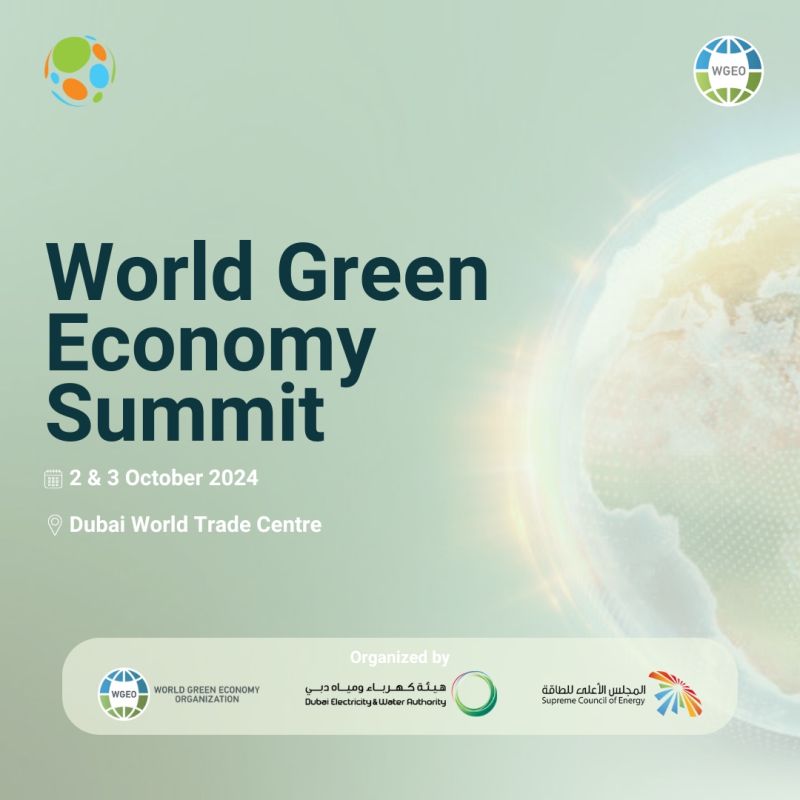The World Green Economy Forum launched today in Dubai, bringing together global leaders and experts to address pressing environmental challenges. Under the patronage of Sheikh Mohammed bin Rashid Al Maktoum, Vice President and Prime Minister of the UAE, the forum’s theme, “Empowering Global Action: Unlocking Opportunities and Advancing Progress,” set the stage for discussions on international cooperation and innovative solutions for climate change and sustainability.
The day’s agenda was packed with critical sessions covering a wide range of topics. The first plenary focused on international cooperation for climate mitigation, where Luma Saqqaf, Director for the Middle East, Africa, and India at the Principles for Responsible Investment, stressed the importance of integrated approaches to achieving sustainable development goals.
A key session titled “Decarbonising Energy-Intensive and Hard-to-Abate Industries” explored strategies to reduce carbon emissions in heavy transport, construction, energy, and chemicals sectors. Another session, “4Ps: Adding Another ‘P’ to PPP (Public-Private Partnerships + Philanthropists),” highlighted the importance of collaboration between philanthropists and the public and private sectors to drive effective climate solutions. The potential applications of artificial intelligence in fostering a sustainable future were discussed in the session “How Can We Use AI to Help Create a Sustainable Future?”
Throughout the day, attendees engaged in discussions on power grid integration challenges, measuring and reporting carbon footprints, and various aspects of decarbonization across industries. A highlight of the forum was a panel discussion on aviation and the green economy, which examined the future of Sustainable Aviation Fuel (SAF). Panelists discussed the ambitious goal of scaling up SAF production from the current 200,000 tonnes to 300 million tonnes by 2050. They also explored various CO2 sources for SAF production and emphasized the importance of stakeholder collaboration and capital investment. The UAE government’s target of 1% SAF use by 2031 was noted as a key driver for change in the region.
The forum also emphasized the critical role of youth in shaping a sustainable future, recognizing their importance in driving long-term environmental progress. As the first day of the World Green Economy Forum concluded, participants expressed optimism about the collaborative efforts and innovative solutions discussed, setting a positive tone for the next day of this crucial global gathering focused on climate action and sustainable development.
Vinod Kumar (UAE)




















